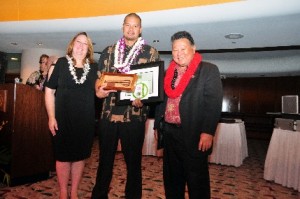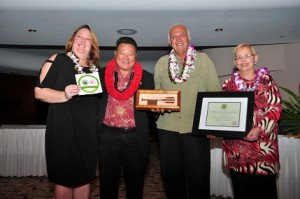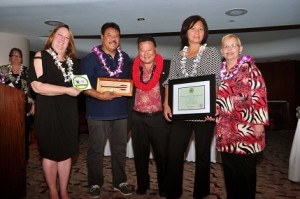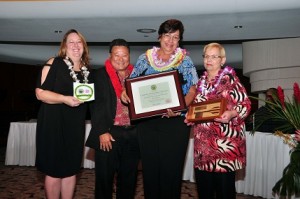FILE - Oil from the Deepwater Horizon spill floats on the water as the sky is reflected in sheen on Barataria Bay, off the coast of Louisiana, in this June, 7, 2010 file photo. A high-stakes trial to assign blame and help figure out exactly how much more BP and other companies should pay for the spill began Monday, Feb. 25, 2013. (AP Photo/Charlie Riedel)
FILE - Oil from the Deepwater Horizon spill floats on the water as the sky is reflected in sheen on Barataria Bay, off the coast of Louisiana, in this June, 7, 2010 file photo. A high-stakes trial to assign blame and help figure out exactly how much more BP and other companies should pay for the spill began Monday, Feb. 25, 2013. (AP Photo/Charlie Riedel)
FILE - This file photo provided by the U.S. Coast Guard shows oil leaking from the drill pipe of the Deepwater Horizon drilling rig after it sank on April 22, 2010, two days after it exploded. A high-stakes trial to assign blame and help figure out exactly how much more BP and other companies should pay for the spill began Monday, Feb. 25, 2013. (AP photo/US Coast Guard)
Protestors from the National Audubon Institute, the Gulf Restoration Network and other organizations stand outside Federal Court on the first day of the Gulf oil spill settlement trial in New Orleans, Monday, Feb. 25, 2013. U.S. District Judge Carl Barbier is scheduled to hear several hours of opening statements Monday by lawyers for the companies, federal and state governments and others who sued over the disaster. Barbier is hearing the case without a jury. (AP Photo/Gerald Herbert)
FILE - In this aerial file photo madeWednesday, April 21, 2010 in the Gulf of Mexico, more than 50 miles southeast of Venice on Louisiana's tip, an oil slick is seen as the Deepwater Horizon oil rig burns. Nearly three years after the deadly rig explosion in the Gulf of Mexico triggered the nation's worst offshore oil spill, a federal judge in New Orleans is set to preside over a high-stakes trial for the raft of litigation spawned by the disaster on Monday Feb. 25, 2013. (AP Photo/Gerald Herbert, file)
FILE - BP PLC Chief Executive Officer Tony Hayward asks members of the media to step back as he walks along Fourchon Beach in Port Fourchon, La., in this file photo taken May 24, 2010, about a month after the Deepwater Horizon oil rig explosion in the Gulf of Mexico. Hayward visited the beach to observe efforts to clean oil that washed ashore from the spill. A high-stakes trial to assign blame and help figure out exactly how much more BP and other companies should pay for the spill began Monday, Feb. 25, 2013. (AP Photo/Patrick Semansky, File)
NEW ORLEANS (AP) ? A University of California-Berkeley engineer who played a prominent role in investigating levee breeches in New Orleans after Hurricane Katrina is scheduled to be the first witness Tuesday at a trial involving another Gulf Coast catastrophe: the worst offshore oil spill in U.S. history.
Robert Bea, an expert witness for the plaintiffs who sued BP PLC and other companies involved in the Deepwater Horizon disaster, will share his theories about what caused BP's Macondo well to blow out on April 20, 2010, provoking an explosion on the Horizon rig that killed 11 workers and spewed an estimated 172 millions of gallons of crude into the Gulf.
Bea's testimony was scheduled for the second day of a civil trial that could result in the oil company and its partners being forced to pay billions of dollars more in damages. The case went to trial Monday after attempts to reach an 11th-hour settlement failed.
The second witness slated to appear is Lamar McKay, president of BP America. The high-ranking executive is likely to discuss corporate decisions that were made during the disaster. It was not clear if there would be time for his testimony Tuesday. Other BP officials were expected to give videotaped testimony.
In pretrial depositions and in a report, Bea argued along with another consultant that BP showed a disregard for safety throughout the company and was reckless ? the same arguments made in opening statements Monday by attorneys for the U.S. government and individuals and businesses hurt by the spill.
Attorneys for BP tried to block Bea's testimony, accusing him of analyzing documents and evidence "spoon-fed" to him by plaintiffs lawyers. BP accused Bea and another expert, William Gale, a California-based fire and explosion investigator and consultant, of ignoring the "safety culture of the other parties" involved in the spill, in particular Transocean Ltd., the drilling company running operations aboard the Deepwater Horizon.
Gale does not appear on a list of potential witnesses.
Just last year, Bea testified for plaintiffs who sued the U.S. Army Corps of Engineers over broken levees in New Orleans following Hurricane Katrina.
In the BP case, U.S. Justice Department attorney Mike Underhill said the catastrophe resulted from the company's "culture of corporate recklessness."
"The evidence will show that BP put profits before people, profits before safety and profits before the environment," Underhill said. "Despite BP's attempts to shift the blame to other parties, by far the primary fault for this disaster belongs to BP."
BP attorney Mike Brock acknowledged the oil company made mistakes. But he accused Transocean of failing to properly maintain the rig's blowout preventer, which had a dead battery, and he claimed cement contractor Halliburton used a bad slurry" that failed to prevent oil and gas from traveling up the well.
BP has already pleaded guilty to manslaughter and other criminal charges and has racked up more than $24 billion in spill-related expenses, including cleanup costs, compensation for businesses and individuals, and $4 billion in criminal penalties.
But the federal government, Gulf Coast states and individuals and businesses hope to convince a federal judge that the company and its partners in the ill-fated drilling project are liable for much more in civil damages under the Clean Water Act and other environmental regulations.
One of the biggest questions facing U.S. District Judge Carl Barbier, who is hearing the case without a jury, is whether BP acted with gross negligence.
Under the Clean Water Act, a polluter can be forced to pay a minimum of $1,100 per barrel of spilled oil; the fines nearly quadruple to about $4,300 a barrel for companies found grossly negligent, meaning BP could be on the hook for nearly $18 billion.
The judge plans to hold the trial in at least two phases. The first phase, which could last three months, is designed to determine what caused the blowout and assign percentages of blame to the companies involved. The second phase will determine what efforts the companies made to stop oil from spilling, and how much crude actually spilled into the Gulf.
During opening statements, BP and its partners pointed the finger at each other in a tangle of accusations and counter-accusations, but BP got the worst of it.
Jim Roy, who represents individuals and businesses hurt by the spill, said BP executives applied "huge financial pressure" to "cut costs and rush the job." The project was more than $50 million over budget and behind schedule at the time of the blowout, Roy said.
"BP repeatedly chose speed over safety," Roy said, quoting from a report by an expert who may testify.
Roy said the spill also resulted from Transocean's "woeful" safety culture and failure to properly train its crew. And Roy said Halliburton provided BP with a product that was "poorly designed, not properly tested and was unstable."
Brad Brian, a lawyer for Transocean, said the company had an experienced, well-trained crew on the rig. He said the Transocean workers' worst mistake may have been placing too much trust in the BP supervisors on the rig.
"And they paid for that trust with their lives," Brian said. "They died not because they weren't trained properly. They died because critical information was withheld from them."
A lawyer for Halliburton defended the company's work and tried to pin the blame on BP and Transocean.
"If BP had shut in the well, we would not be here today," Halliburton's Donald Godwin said.
Brock said Transocean's crew members ultimately were responsible for well control on the rig and didn't need permission from BP supervisors to shut in the well.
"Shut in the well, then seek advice," he said.
Underhill, the Justice Department attorney, heaped blame on BP for cost-cutting decisions made in the months and weeks leading up the disaster. He said two BP rig supervisors, Robert Kaluza and Donald Vidrine, disregarded abnormally high pressure readings that should have been glaring indications of trouble.
Kaluza and Vidrine have been indicted on federal manslaughter charges.
The 2010 spill fouled marshes, killed wildlife and closed fishing grounds. Scientists warn that the disaster's full effect may not be known for years. But they have reported dying coral reefs and fish afflicted with lesions and illnesses that might be oil-related.
Associated PressSource: http://hosted2.ap.org/APDEFAULT/386c25518f464186bf7a2ac026580ce7/Article_2013-02-26-Gulf%20Oil%20Spill-Trial/id-1549be12871d4bdfa0580e218c1af68d
Electoral College chuck pagano A Gay Lesbian daylight savings time 2012 Where To Vote james harden breeders cup











 Steve Sansweet is a bit of a rebel among hardcore Star Wars collectors. While many afficianados will specialize a single type of memorabilia?Rob Foster's 2,000-piece set only includes figurines for example?Sansweet will pick up anything from the series for curation in his massive, 300,000-piece museum, Rancho Obi-Wan.
Steve Sansweet is a bit of a rebel among hardcore Star Wars collectors. While many afficianados will specialize a single type of memorabilia?Rob Foster's 2,000-piece set only includes figurines for example?Sansweet will pick up anything from the series for curation in his massive, 300,000-piece museum, Rancho Obi-Wan. Taking a page from Tokyo Flash's bewildering design playbook, Romain Jerome's latest watch?the Spacecraft?takes an unconventional approach to displaying the time. But thankfully it's not as difficult as deciphering the array of dials and switches on a NASA-designed craft.
Taking a page from Tokyo Flash's bewildering design playbook, Romain Jerome's latest watch?the Spacecraft?takes an unconventional approach to displaying the time. But thankfully it's not as difficult as deciphering the array of dials and switches on a NASA-designed craft. A case made from PVD-coated titanium and other hoity-toity materials ensures the Spacecraft isn't going to come cheap. But since it's targeted at pilots who may one day visit space, it's just assumed they're already sufficiently funded and can easily afford strapping one to their wrist. [Romain Jerome via Damn Geeky]
A case made from PVD-coated titanium and other hoity-toity materials ensures the Spacecraft isn't going to come cheap. But since it's targeted at pilots who may one day visit space, it's just assumed they're already sufficiently funded and can easily afford strapping one to their wrist. [Romain Jerome via Damn Geeky]